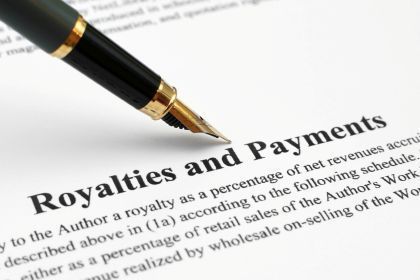
Question: “How would the franchisor know if I pay a smaller royalty than I should based on my sales?”
June 19, 2014 3:06 pm
1 Comment
Franchisors would like to believe that franchisees are honest, and therefore all franchisees will pay the real royalty amount as opposed to an amount that suits the franchisees. . . . What’s that I hear? Laughter!
So let me tell you how franchisors protect themselves.
There are many checks and balances that franchisors can develop and implement to make sure they’re getting their fair share of royalty dollars. Retail franchisors almost always require their franchisees to use a franchise-approved point of purchase system that electronically records every sale — at least every sale that gets rung up at the cash register! — and reports the sales every 24 hours to the franchisor. But crafty franchisees can work their way around a cash register, and in many franchise businesses, there is no cash register. But there are other means to make sure that franchisees pay their fair share of royalties.
Track the inventory
One good way is to track inventory. Let’s say you sell hamburgers at your franchise. A good hamburger comes with a tasty roll (or bun), and chances are very good that the franchisor controls the bakery that sells you the rolls. Franchisees are not permitted to buy rolls from just any bakery; they must buy rolls from the franchisor’s designated bakery supplier. And you can be sure that the designated supplier provides the franchisor with inventory reports that reveal how many rolls were sold to the franchisees. If your franchisor discovers that you’re buying 3,000 rolls a week but paying royalties for the equivalent of 2,000 hamburgers sold — you’ve got some explaining to do. What are you doing with an extra 1,000 rolls a week? Chances are you’re selling more hamburgers, which means you owe more royalty dollars.
Other franchisees will tell
Ah, but what if you don’t carry inventory? I was the CEO of a real estate investment franchise — HomeVestors — and we depended on our franchisees to pay us a royalty for each house they purchased. Of course, they were supposed to purchase the houses in their franchise company name, but some did not, which made it more difficult for us to know how many houses were being purchased. Our best protection was other franchisees. One thing that franchisees frequently do is talk about their triumphs, and cheating their franchisor is considered, by some, a triumph. Often times we’d hear from franchisees that “so and so” is under-paying royalties, and with that tip off we’d do our own investigation and catch the franchisees.
Franchisors would be naive to believe that their franchisees are paying the real royalty as opposed to a convenient royalty. And it doesn’t take much today for a franchisee to justify robbing from the franchisor to make up for something the franchisor allegedly did or didn’t do. Consequently, franchisors invest time and resources in developing ways to keep franchisees honest.
Tags: royalties
Categorised in: Buy a Franchise, Franchise fees, Franchise operations, Franchise support, Franchisee
This post was written by Dr. John Hayes

1 Comment
I never would have thought about some scamming out of royalties with the housing franchise. The smaller ones like the hamburger example would seem easier to catch due to quantity. The house example must be a little harder, but I suppose it always comes back to bite them, as well it should.